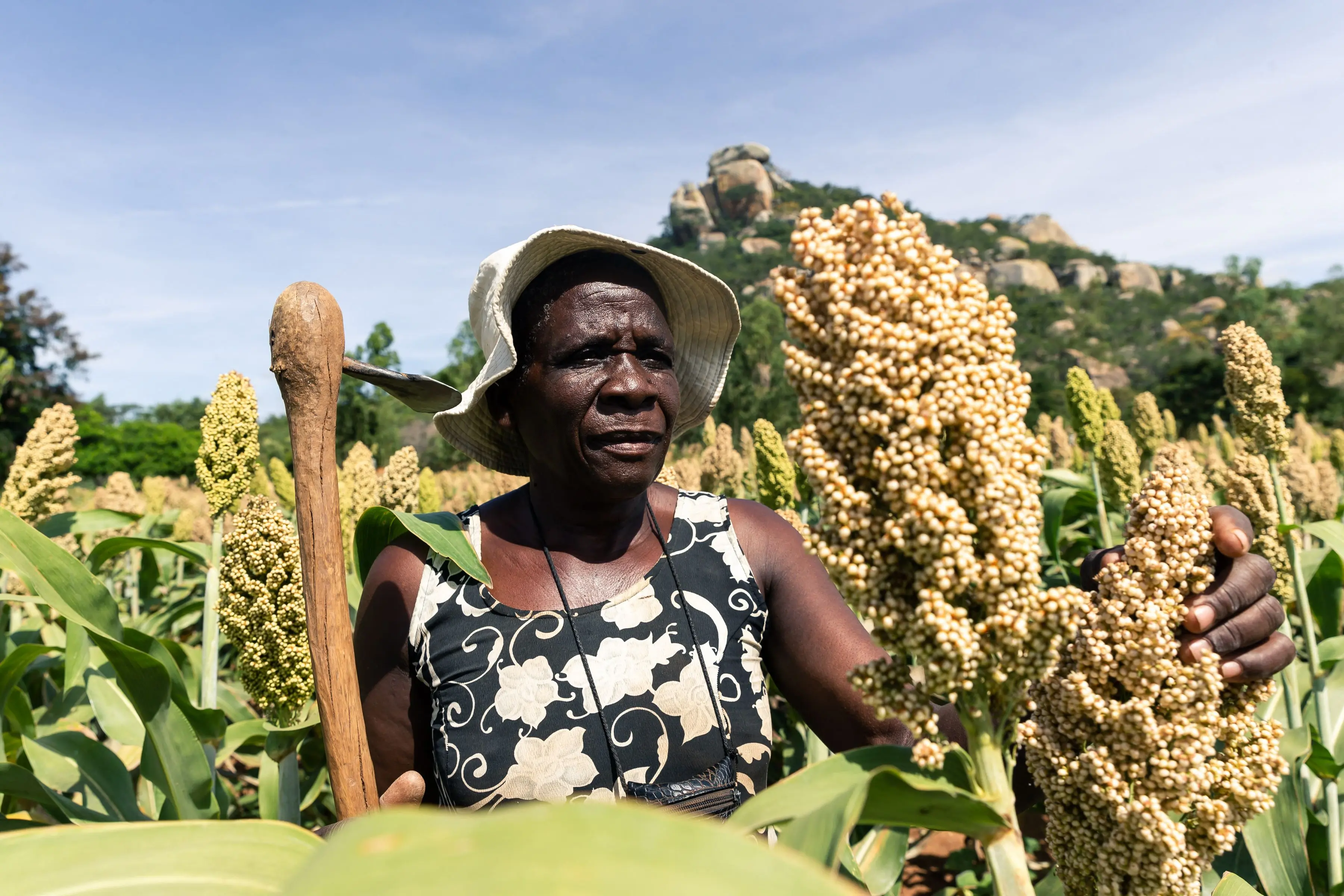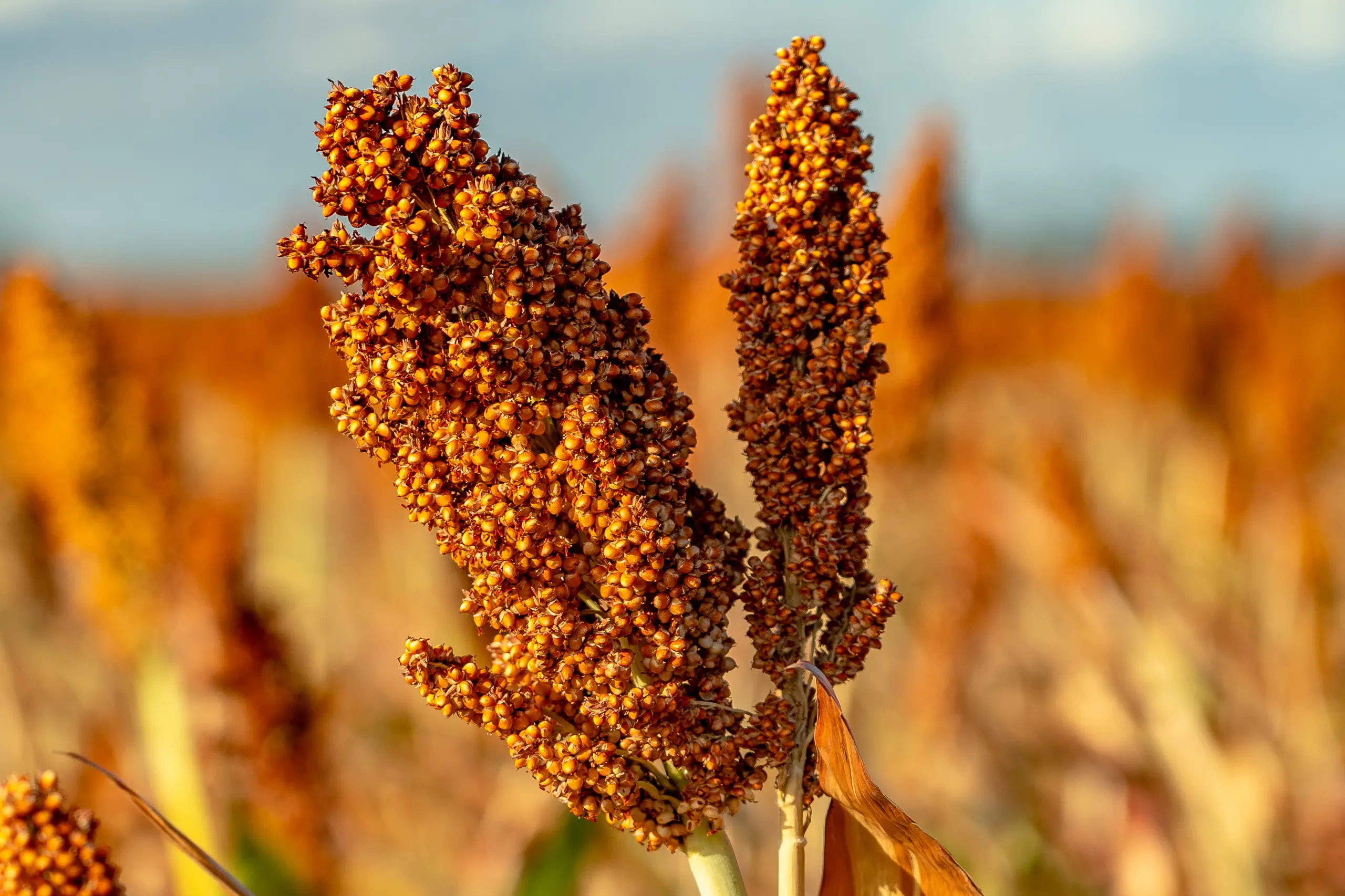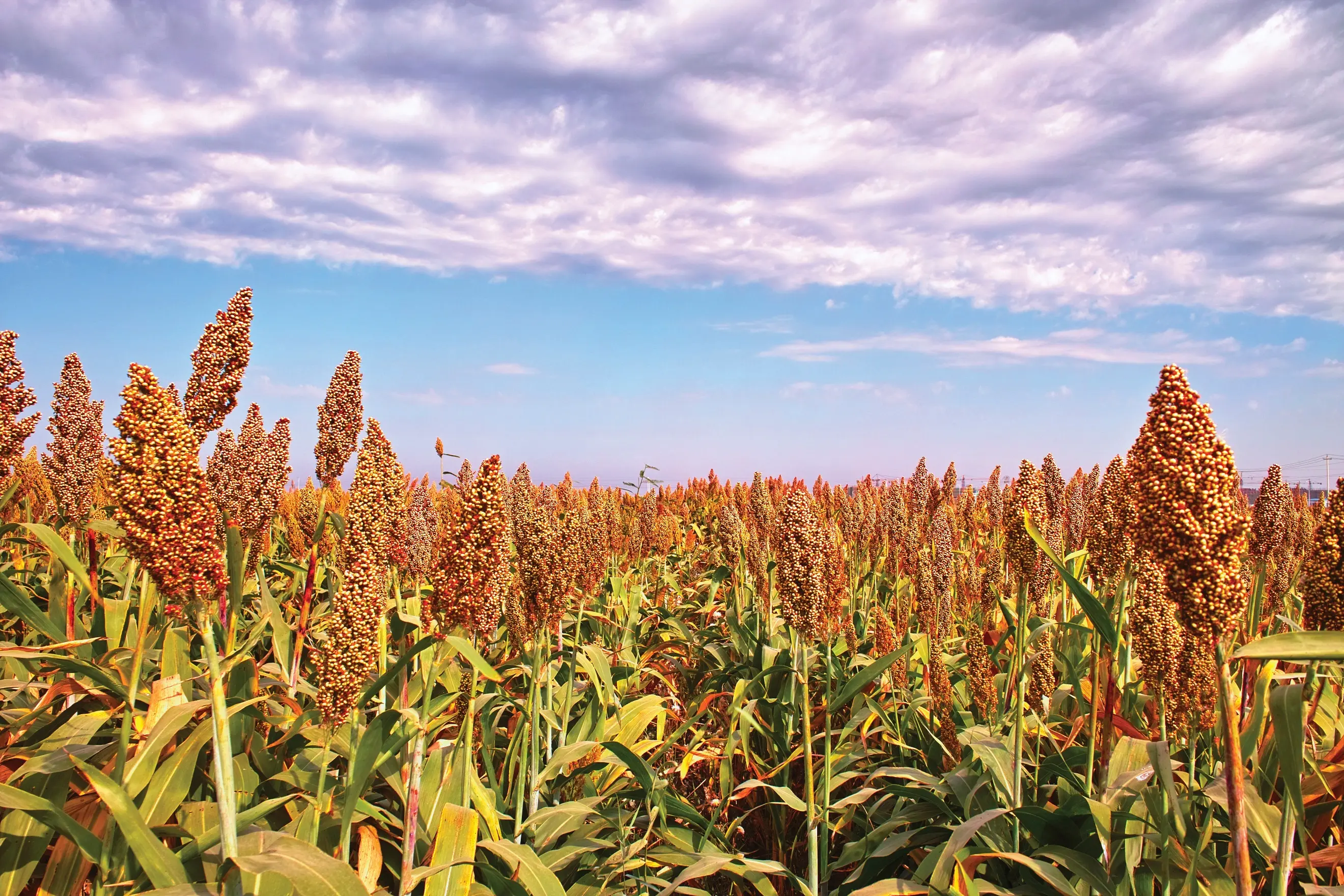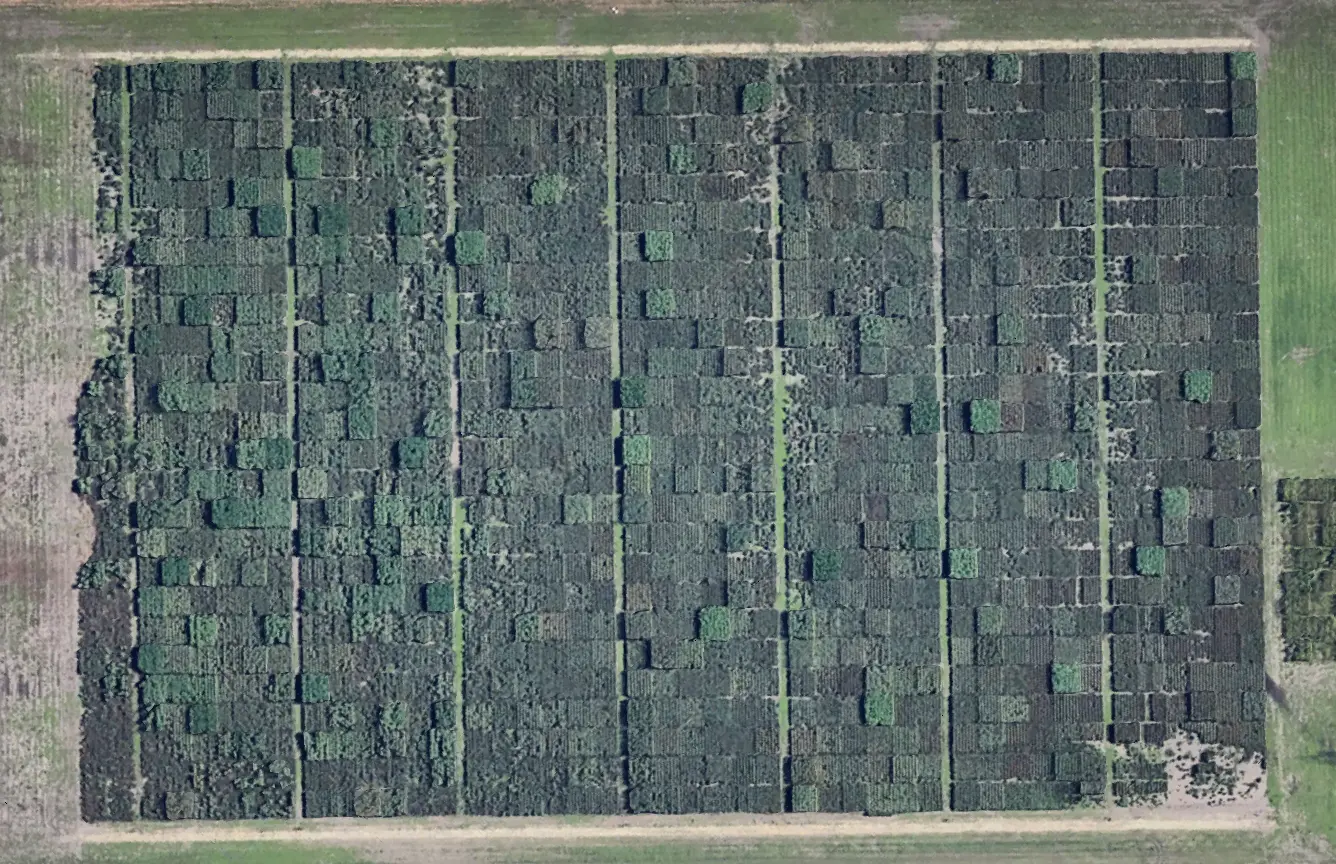Core concepts
Why Study Sorghum?
A Climate Smart Crop
Sorghum, the fifth most cultivated cereal crop worldwide, excels in converting solar energy into biomass and is resilient to drought and heat stress. Known as a Climate Smart crop, sorghum plays a vital role in global food security, particularly in Africa, where it provides nutrition to over half a billion people.

Nutritional and Economic Value
Its grains are nutrient-rich, containing 12% protein and significant levels of iron, zinc, phosphorus, and B-complex vitamins. Beyond its dietary contributions, sorghum is a key bioenergy feedstock, making it a sustainable crop for food and energy production.

Global Production
Sorghum is grown in all corners of the globe, with a harvest of nearly 60 M tons in 2021. The U.S. is the largest producer of grain sorghum, and produced 11 M tons in 2021.

Sorghum's Involvement
At Shakoor Lab, we are working on a five-year project funded by the National Sorghum Producers (NSP) to study how sorghum, an important crop, grows under different farming methods. We are testing two types of commercial sorghum hybrids in field trials using three types of management practices: no-till farming, precision nitrogen application, and cover cropping. No-till farming is a method where the soil is left undisturbed before planting, helping to protect and improve soil health. Precision nitrogen application is a method where the right amount of fertilizer is applied at the right time, so plants get exactly what they need without wasting resources. Cover cropping involves planting other crops between main crop seasons to enrich the soil, reduce erosion, and benefit the environment.

The main goal of our project is to learn how different sorghum varieties respond to these common farming systems used across the U.S. We want to figure out which sorghum types perform best in each system—especially in terms of yield and overall production. This information can help farmers choose the right variety for their land, which improves both economic outcomes and environmental sustainability. Sorghum is not only a food source for humans and animals, but it is also used as a bioenergy crop, meaning it can help produce fuel from plants. Planting the right sorghum in the right conditions can strengthen the U.S. economy.
The data used in this project originates from our research field trials focused on sorghum. These trials examine sorghum's phenotypic traits, providing valuable insights for your analysis in this activity. Sorghum is not only a critical crop for food security and sustainability, but also a powerful tool for carbon sequestration, making it a key player in combating climate change while supporting sustainable agricultural practices.

Advancing Sustainable Agriculture
By studying sorghum, researchers can advance sustainable agriculture and address food security challenges effectively.
You Should Know!
Sorghum research isn’t just about improving crops—it’s about creating sustainable solutions for global food security and combating climate change through innovative practices.
Resources Used
Please see below the resources that we used, to provide you the information above!
Source used for general information about Sorghum: Sorghum101
Second source used for facts about Sorghum: Discover Sorghum
Third source used for information on Sorghum's nutritional value and uses: Sorghum | Nutrition, Uses, & Description
Fourth source used for fun facts about Sorghum: Fun Facts about Sorghum
📝 Pop Quiz! 📝
Lets recap on the concepts you just read about, and see how much you learned! The answers can be found below, no peeking!
Questions
- What are the three farming methods being tested in Shakoor Lab’s sorghum research project?
- What is the main goal of the five-year sorghum research project at Shakoor Lab?
- What is no-till farming, and why is it beneficial?
- How does precision nitrogen application help improve farming?
- What are cover crops, and what benefits do they provide?
- Why is sorghum considered a sustainable crop?
- Name at least three nutrients found in sorghum grain.
- What makes sorghum a “Climate Smart” crop?
- How does sorghum contribute to combating climate change?
- Which country is the largest producer of grain sorghum, and how many tons did it produce in 2021?
You Should Know!
To view the answers to the quiz, you need to receive the password from your instructor. From there, click next to the word "Password" below, type in the password, and then click "View Quiz Answers".
Answers
Congrats on completing the Core Concepts module, on what our lab and this activity is all about! When you are ready, please move on to the Project portion of the activity. You can begin the activity by clicking the Next arrow bottom of the page, or using the navigation on the left side of the page.